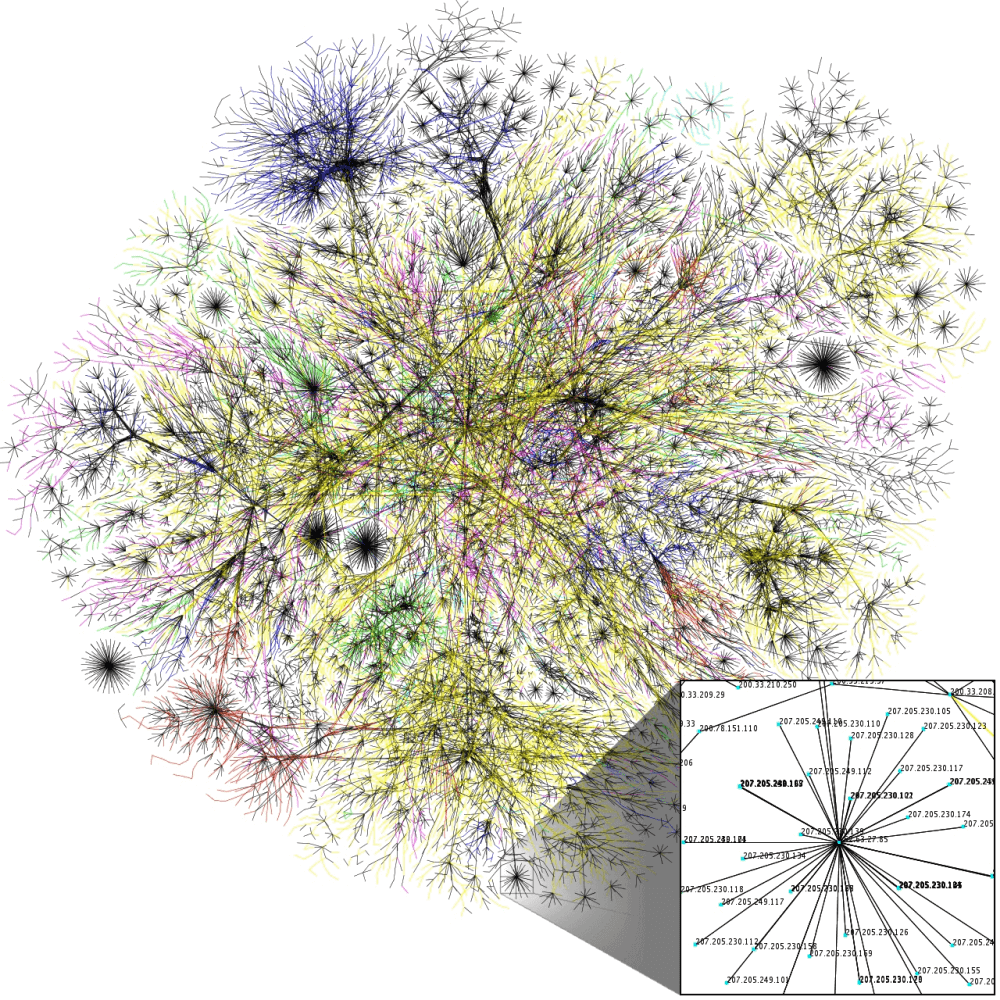Trends
Who Controls The Internet?
Has it ever struck you to question how the internet works? how/who created the internet? And most of all, who controls the internet? You Should Read this

Has it ever struck you to question how the internet works? how/who created the internet? And most of all, who controls the internet?
This curiosity stems particularly from imagining how some invented something so vast and formless. The Internet is everywhere yet you can only see it in glimpses.
As illustrated by TheGuardian, it’s easy to picture Thomas Edison inventing the lightbulb, because a lightbulb is easy to visualize. You can hold it in your hand and examine it from every angle.
The internet is the opposite. It’s everywhere, but we only see it in glimpses. The internet is like the holy ghost: it makes itself knowable to us by taking possession of the pixels on our screens to manifest sites and apps and email, but its essence is always elsewhere.
What is the Internet?
The Internet is a globally distributed network comprising many voluntarily interconnected autonomous networks.
Okay, that sounds a bit too technical. Let’s break it down.
As described by FreeCodeCamp, the internet is a wire; many wires that connect computers all around the world.

Visualisation of a possible routing path on the Internet. Image from Wikimedia Foundation.
According to Webopedia, the internet is a massive network of networks, a networking infrastructure. It connects millions of computers together globally, forming a network in which any computer can communicate with any other computer as long as they are both connected to the internet. Information that travels over the internet does so via a variety of languages known as protocols.
The Internet emerged in the United States in the 1970s but did not become visible to the general public until the early 1990s. By 2020, approximately 4.5 billion people, or more than half of the world’s population, were estimated to have access to the Internet.
Who Invented the Internet?
If you are ever curious to ask this question, you must have been met with more wrong answers than right.
When you think of the invention of the light bulb, Edison comes to mind; when you think of an aeroplane, the Wright Brothers echoes out. The same cannot be said of the internet.
While some attribute the invention of the Internet to the Military, some others attribute it to Robert Kahn and Vinton Cerf, Al Gore, or even Tim Berners-Lee.
Yes, It is true that the military pioneered a lot of early computer tech and funded the first connections (Advanced Research Projects Agency Network, ARPANET) between massive computers in the 1960s.
It is also true that in 1976, Robert Kahn and Vinton Cerf invented the frameworks on which internet networks and information still run on to this day.
Al Gore didn’t invent the internet neither has he claimed so. He only bragged about being a key part of the group that approved funding for ARPANET, an initiative that led to the creation of the internet.
Lastly, Sir Tim Berners-Lee didn’t invent the internet. In 1989, Berners-Lee introduced the Web, the platform that we all use the internet on today. But without the work of ARPANET and people like Robert Kahn & Vinton Cerf, there would be nothing for the World Wide Web to run on
The Internet is Not The Web
Many people fondly mistake the internet and the web to be the same thing. Not, they are quite different.
The internet is a global network of computers while the World Wide Web (WWW) is an application — an information-sharing model — that runs on the internet.
No doubt, the web is the most widely used service on the internet; it provides access to billions of pages of information. However, it is only a portion of the internet that would not have existed without the internet.
Who controls the Internet?
As earlier stated, the internet is a globally distributed network comprising many voluntarily interconnected autonomous networks making it a decentralized system. Thus, no one — person, company, organization, or government — is in charge of the internet.
However, voluntarily interconnected networks such as the private sector, governments, academic and research communities, and national and international organizations. set and enforce their own policies.
They work cooperatively from their respective roles to create shared policies and standards that maintain the Internet’s global interoperability for the public good.
Additionally, to help ensure interoperability, several key technical and policy aspects of the underlying core infrastructure and the principal namespaces are administered by the Internet Corporation for Assigned Names and Numbers (ICANN), which is headquartered in Los Angeles, California.
ICANN oversees the assignment of globally unique identifiers on the Internet, including domain names, Internet protocol addresses, application port numbers in the transport protocols, and many other parameters.
This seeks to create a globally unified namespace to ensure the global reach of the Internet. ICANN is governed by an international board of directors drawn from across the Internet’s technical, business, academic, and other non-commercial communities.
In a time like this when the world is moving online, here are 5 high-demand lucrative tech skills in demand you should acquire.

